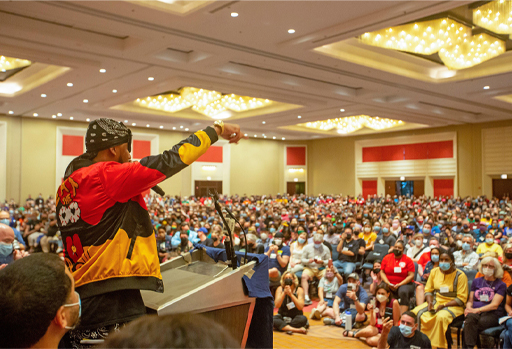Week 8: Organising – building collectives for change
Introduction
This week was written by Tom Morton, Fidèle Mutwarasibo and Owain Smolović Jones.
This week the focus will be on organising. In its most fundamental sense, you can think of organising as developing the capacity of a formal or informal group to achieve goals. This can include building relationships with investors who can finance a start-up, constituting a charity to provide aid to refugees, becoming a recognised trade union at work, building a community organisation that can campaign for civil rights… the list really is endless. Whether you are building a new collective from scratch or building the capacity of an organisation that already exists, you are organising.
You will focus on organising in two contexts: workplace organising and community organising. Both have been crucial areas of struggle for Black leaders. In the workplace, you may be aware of the work of Chris Smalls and the Amazon Labour Union, building an entirely new organisation with which to represent the interests of workers in the retail giant. Organising in the community also has a longstanding and prestigious history of Black leadership. In the UK today, these community movements are made up of diverse organisations that include the Black Equity Organisation and the Forever Family.
Last week the focus was campaigning and more specifically how, beginning with issues, campaigns can mobilise a given constituency to win a specific social change. You can think of organising as this process in reverse. Rather than beginning from the perspective of issues before identifying a constituency to mobilise around them, organising begins from the perspective of a constituency before asking what issues will mobilise people within it. Organising is about people and how people can be arranged in a way that develops their capacity to act.
This week you will frame an understanding of organising as a process of building power, before thinking about how campaigning fits into this context and the spaces for leadership that this creates.
By the end of this week, you should be able to:
- understand approaches to organising in the workplace and in the community
- evaluate theories of power in several organising contexts
- apply campaigning theory to your organising contexts
- situate leadership practices in workplace and community organising.

